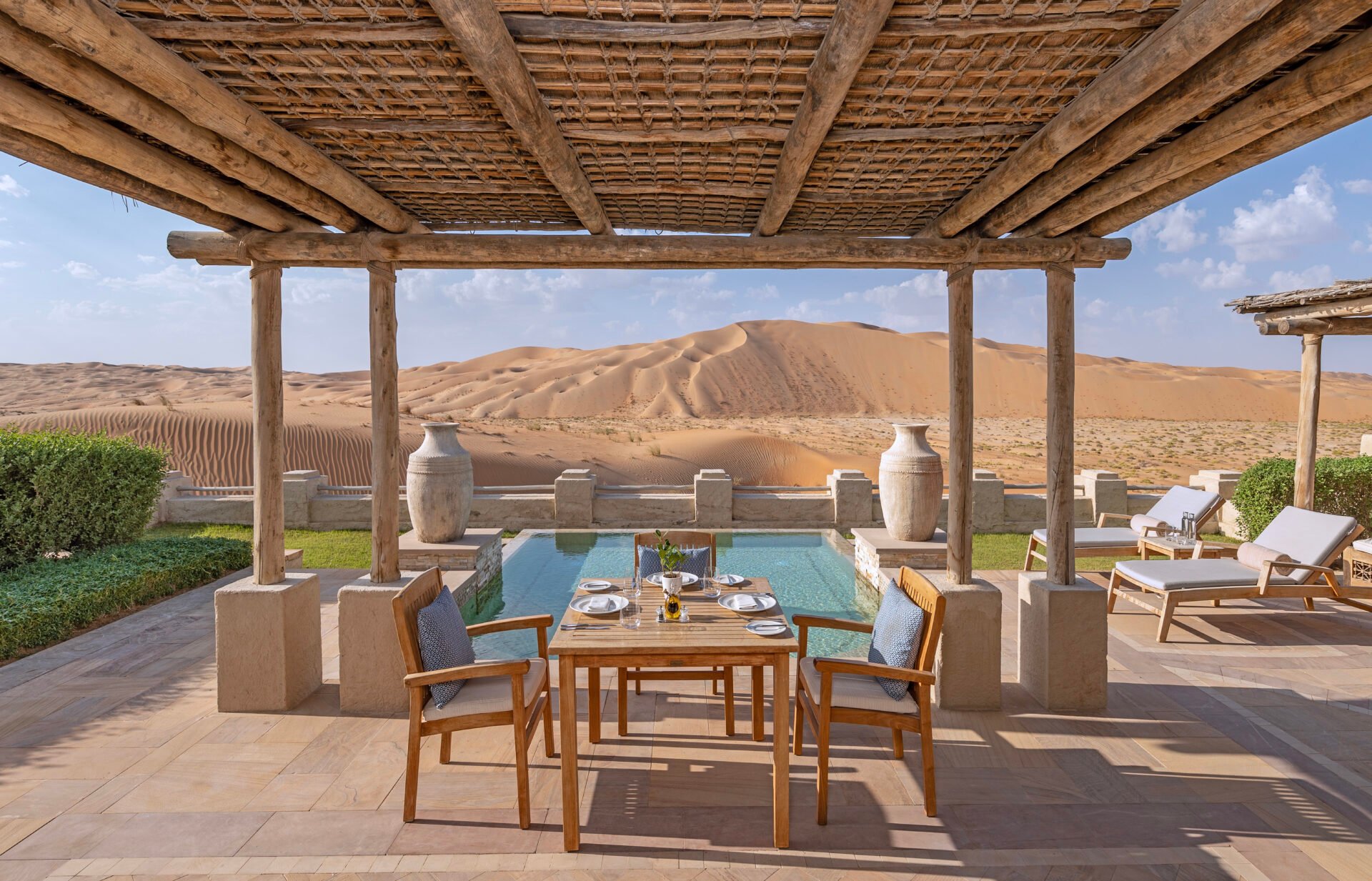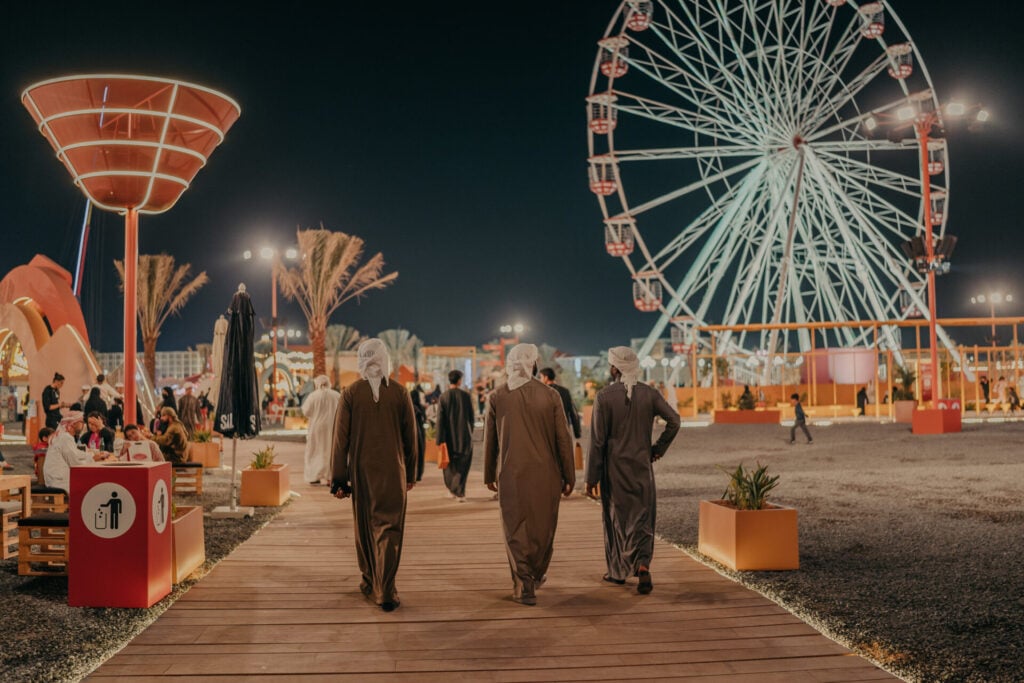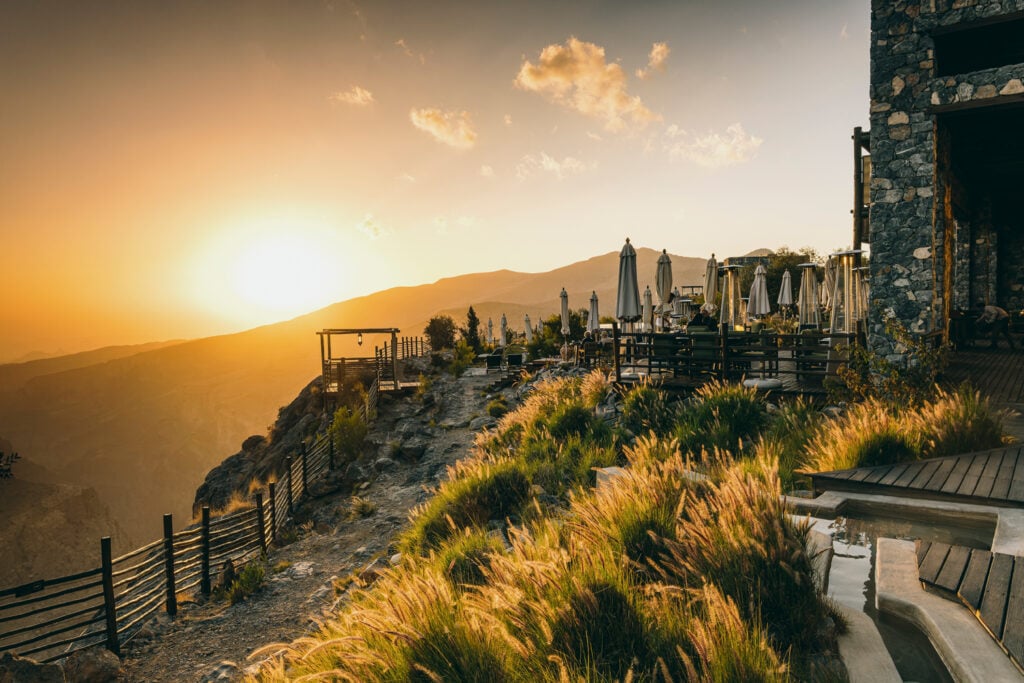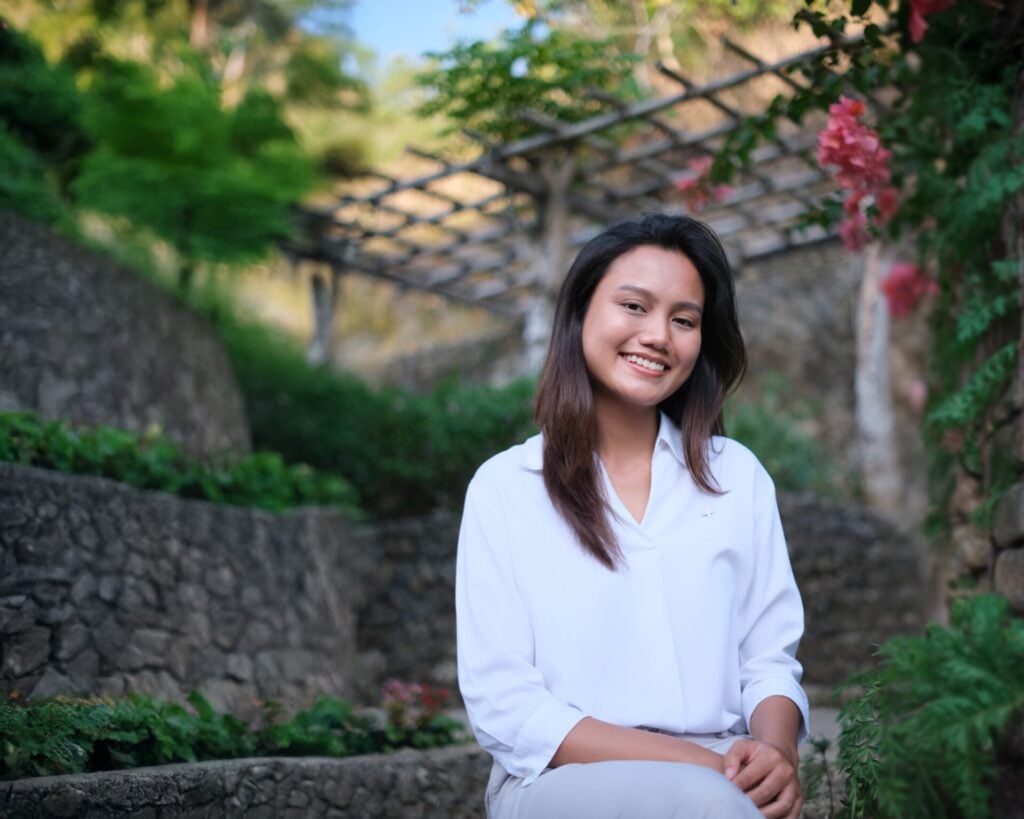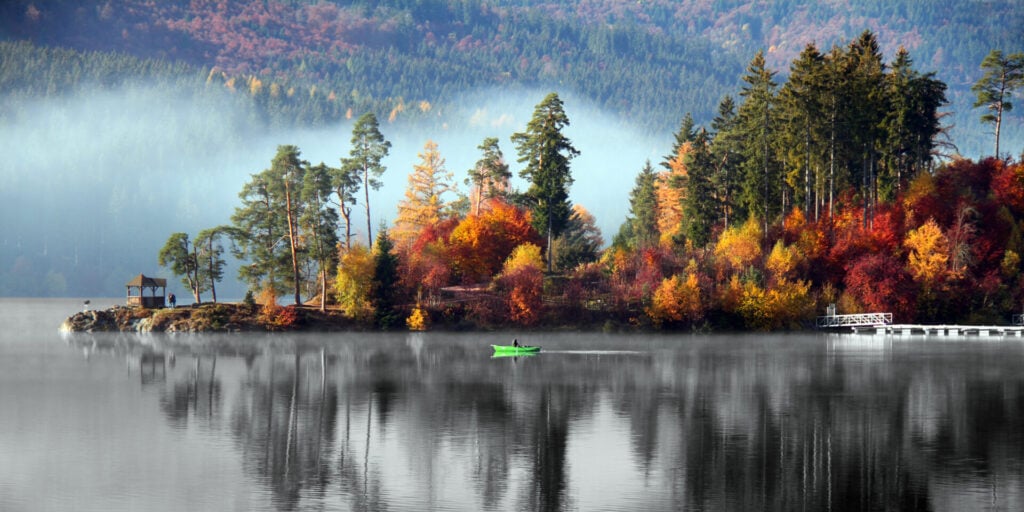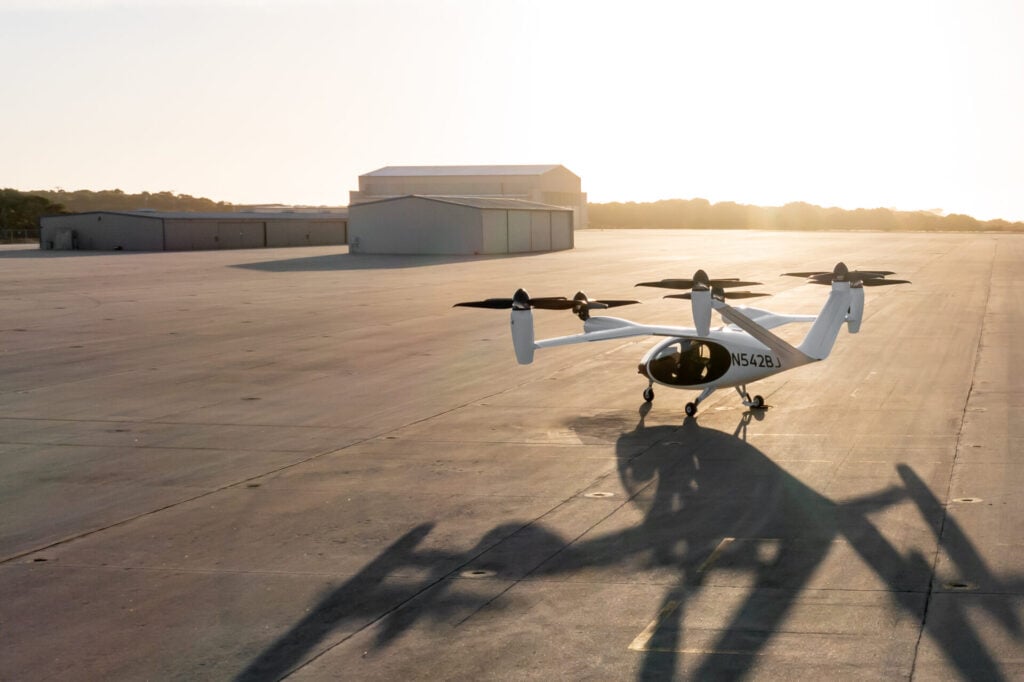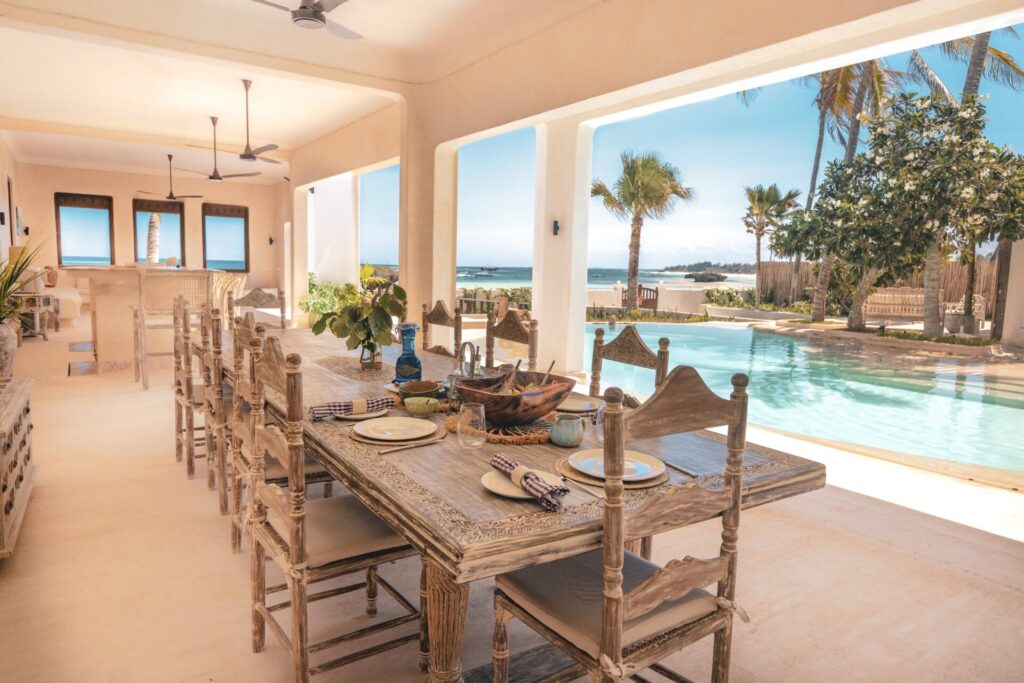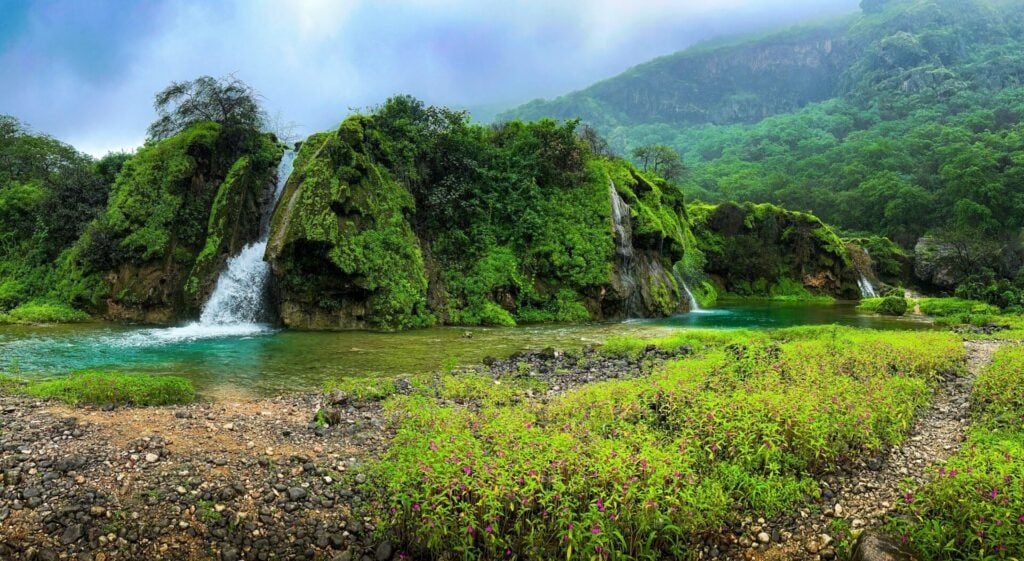Tucked deep within the Liwa Desert, Qasr Al Sarab by Anantara feels like something from another world, a quiet fortress rising from the sand. But behind the serenity is a growing commitment to something more lasting than luxury: a future-proof, environmentally conscious hospitality model.
At the helm of this change is Jean-Paul Dantil, the resort’s General Manager and an industry veteran with time spent at COMO, Ritz-Carlton, and Six Senses. With a passion for meaningful travel and a hands-on approach to guest experience, Jean-Paul is helping reimagine what a desert resort can be.
From solar-heated pools and an in-house water bottling plant to a working Emirati farm and a gazelle conservation programme, Qasr Al Sarab by Anantara is doing far more than ticking eco-boxes.
We sat down with Jean-Paul to talk desert farming, carbon neutrality, and how to grow tomatoes in the sand.
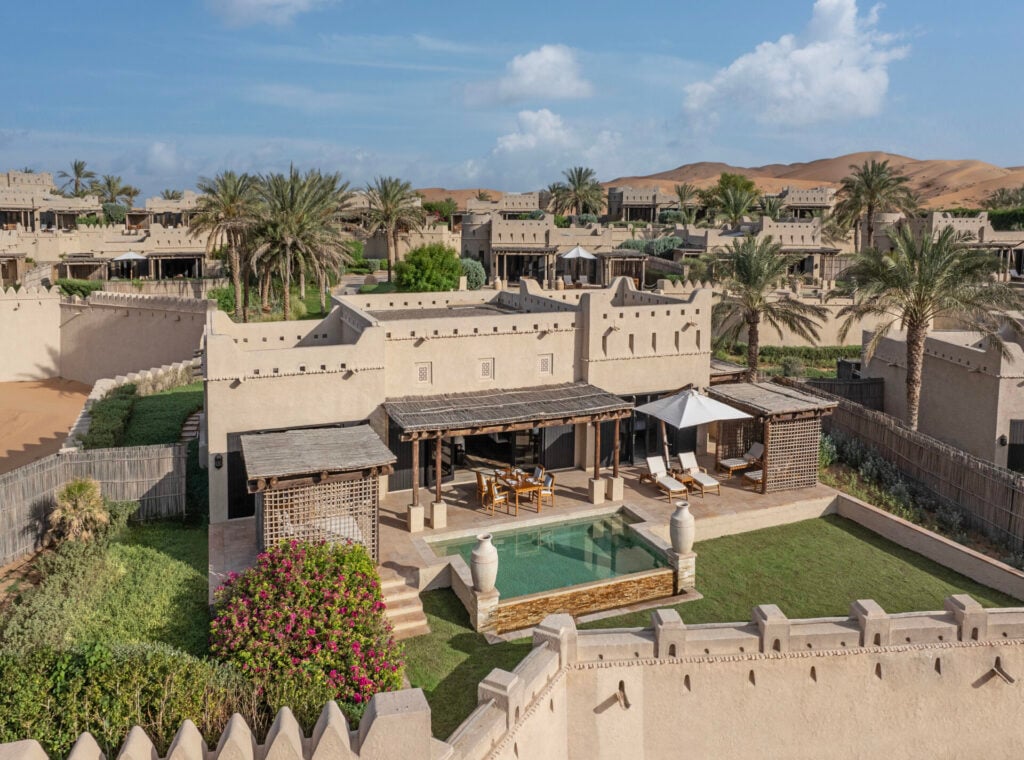
TE: You’ve had a long career across some of the top luxury hospitality brands. How did that shape what you’ve brought to Qasr Al Sarab?
Jean-Paul Dantil: Absolutely. I started out with COMO Hotels and later worked with Ritz-Carlton, Cheval Blanc, and Six Senses. Each of those experiences helped shape my values around hospitality, particularly around sustainability and creating meaningful guest experiences. My time at Six Senses was especially impactful, they were pioneers in integrating sustainability into luxury travel, and they really lived it. That mindset stayed with me.
When I joined Qasr Al Sarab nearly three years ago, the resort was already doing great things, but I saw huge potential to take it even further. One of the first projects we developed was the transformation of our Sustainability Centre into something more immersive, which we now call Ezba, an Emirati farm designed to educate and inspire.
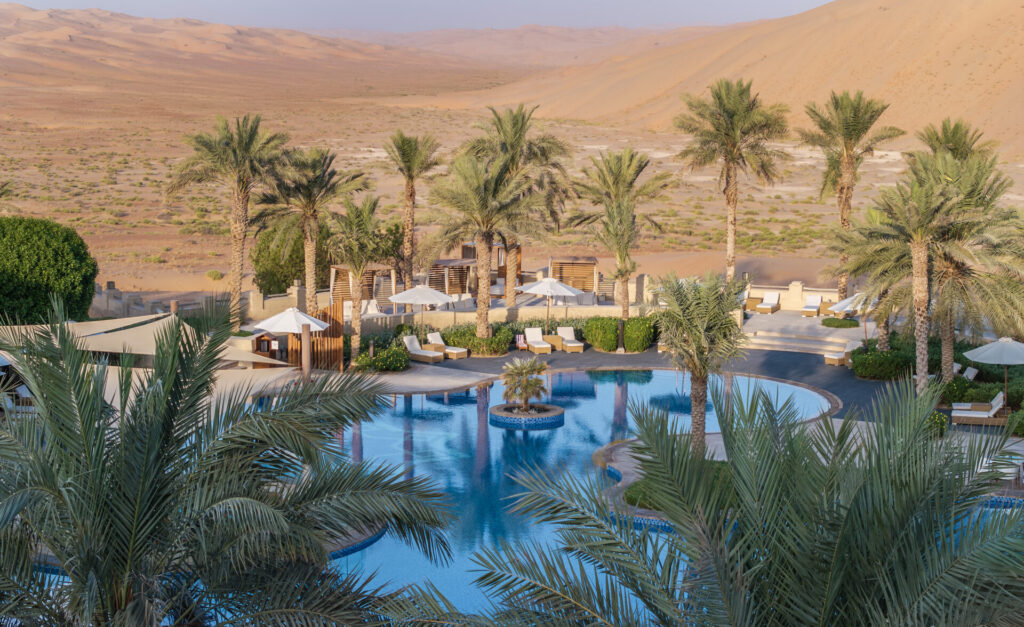
TE: Tell us more about the Ezba. What was the vision behind it?
Jean-Paul Dantil: The idea was to create something rooted in local culture and relevant to the environment we’re in. ‘Ezba’ means farm in Arabic, and it’s more than just a garden. We grow seasonal produce, we have a date plantation, and we also have a conservation programme with gazelles and oryxes. It’s a space where guests can learn how Emiratis have historically survived and thrived in the desert, from traditional farming techniques to understanding desert flora and fauna. It’s not just about sustainability in theory; it’s about experiencing it. We run guided tours, and we’re gradually building in more hands-on guest experiences like weaving, oud-making, and cooking classes using ingredients from the farm.
TE: What are some of the challenges you’ve faced with desert farming?
Jean-Paul Dantil: Growing anything in the desert is a challenge—the soil, the heat, the water. In the beginning, our tomatoes weren’t great. The chef actually refused to use them at first! But we invested time in improving the soil, and now we’re producing quality herbs and vegetables, many of which make it into our kitchens. The ones that don’t meet guest standards go to our team or get composted. Nothing is wasted. We’re learning season by season what grows best, and it’s rewarding to see that progress.
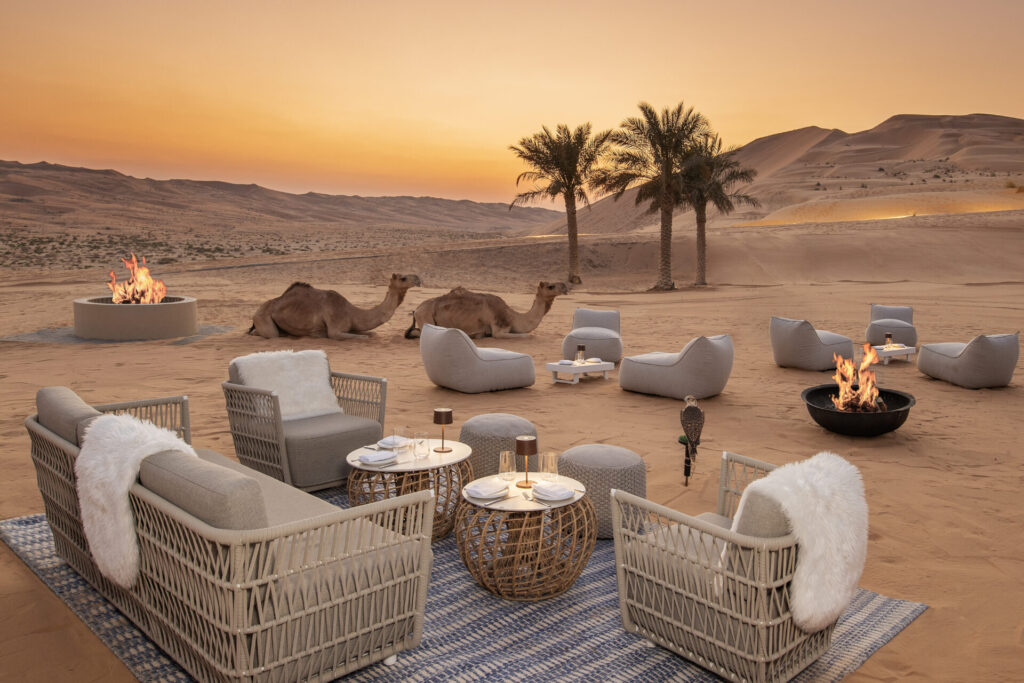
TE: Sustainability often gets reduced to buzzwords in hospitality. How are you making it real at the resort?
Jean-Paul Dantil: That’s a great point. We want sustainability to be a part of everyday operations, not just a marketing line. So we’ve made practical changes: all of our villas use solar power to heat their pools, we eliminated single-use plastic amenities, and we have our own in-house water bottling plant. Guests receive refillable bottles when they arrive and can top up throughout the resort. We also prioritise sourcing local – from water to honey – and we avoid flying in branded bottled water from overseas. It’s about taking responsibility where we can and embedding it into the guest experience without compromising on luxury.
TE: You mentioned a conservation programme. Can you share more about that?
Jean-Paul Dantil: We work closely with the Emirates Wildlife Society on a breeding and release programme for gazelles and oryxes. These animals are an important part of the desert ecosystem but are increasingly under threat. Our approach is very hands-off; we minimise human contact so they don’t become too tame, which makes rewilding possible. Guests can observe from a distance, but the focus is on the animals’ wellbeing. We also have Saluki dogs, which are part of Emirati heritage. They’re a lovely way for guests to learn about local traditions in a more personal way.
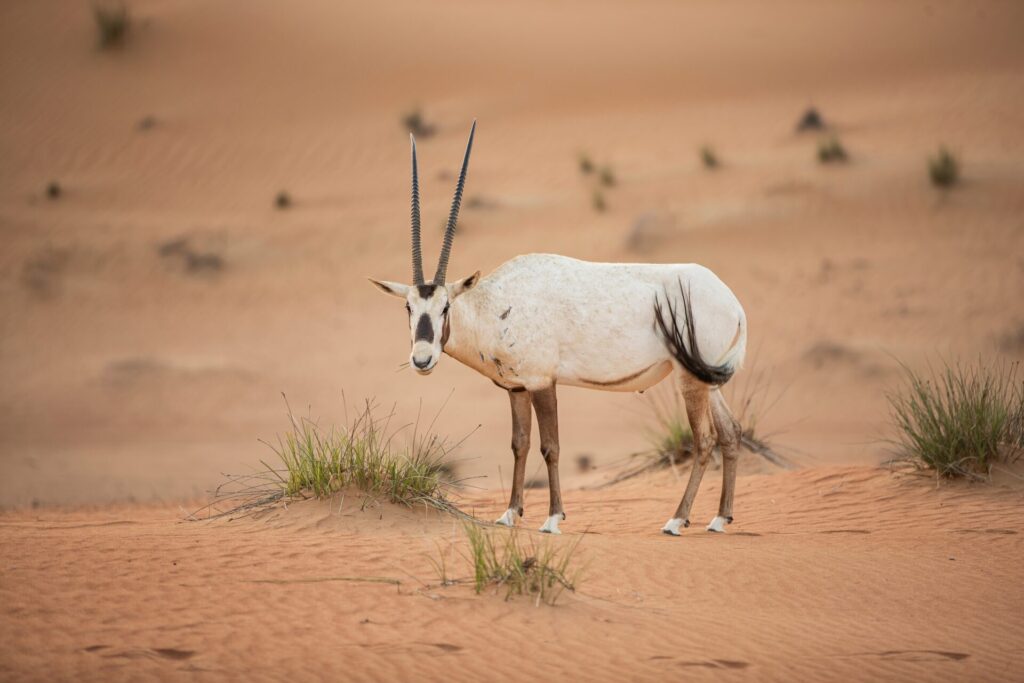
TE: What do you think today’s luxury traveller is really looking for?
Jean-Paul Dantil: People are definitely seeking more meaningful experiences. It’s not just about five-star service anymore, it’s about reconnecting. Reconnecting with nature, with culture, with themselves. At Qasr Al Sarab, we’re lucky to be in a location that allows for that kind of reset. Guests come here and often tell us they wish they’d booked a longer stay. The peace and the scale of the desert have a real impact. Activities like stargazing, walking through the dunes, or visiting the farm help to offer that grounding.
TE: Qasr Al Sarab has EV charging stations on-site. Why was that an important addition?
Jean-Paul Dantil: Absolutely, it’s something I feel quite strongly about. A lot of guests worry about driving electric vehicles to more remote places like ours, but I drive an EV myself and make it easily from Dubai on a single charge. Having charging stations on-site is a small step in encouraging sustainable travel. We’re also in talks with a petrol station halfway between here and Dubai to install EV chargers, just to give travellers that extra peace of mind.
TE: And looking ahead, what’s next for the resort?
Jean-Paul Dantil: We’re planning a major renovation focused on energy efficiency, replacing older systems, introducing more solar infrastructure, and reducing our overall footprint. We’re also developing a pop-up restaurant that uses only ingredients from our farm. It’s a big goal, but we’re taking it one step at a time. We’re also investing in education, especially for kids. Our new kids’ club will feature sustainability-focused programming so that even the youngest guests take something meaningful away.
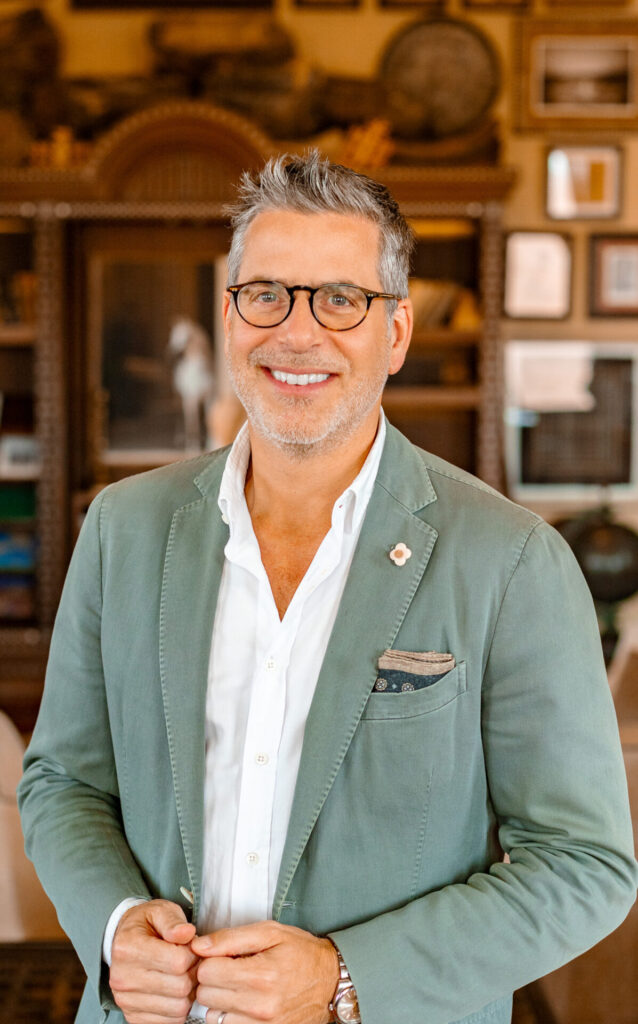
To learn more visit anantara.com

